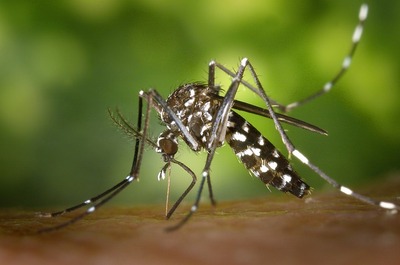Wisconsin Residents More "Bugged" Than Usual this Summer
Monday, August 12th, 2024 -- 9:00 AM

(Royce Podeszwa, Wisconsin Public Radio) Have mosquitoes felt extra annoying this year in Wisconsin?
According to Royce Podeszwa with Wisconsin Public Radio, if so, that’s because they’re likely more prevalent than in previous years. Warm weather plus lots of rain create ideal conditions for mosquito populations.
All major regions of the state are seeing above-average precipitation this year, according to the State Climatology Office. But it can be challenging to gauge exactly how bad mosquitoes are in Wisconsin because the state lacks any major agency dedicated to the control and monitoring of the buzzing insects.
Daniel Huff is executive director of the Metropolitan Mosquito Control District in Minnesota. Huff’s district covers seven counties around the Twin Cities and a majority of the neighboring state’s population. Huff recently told WPR’s “Wisconsin Today” that bad mosquito years are only going to become more common as the climate changes.
“I think mosquito-borne diseases are the biggest risk to us with climate change,” he said, referring to Dengue fever, Zika, malaria and other illnesses. “We are concerned that those diseases will migrate (north).” Earlier this month, the Wisconsin Department of Health Services reported the first confirmed cases of West Nile virus for the year.
Huff said there are three main kinds of mosquitoes in the Upper Midwest: snow-melt mosquitoes that come in the early spring; summer mosquitoes that arrive around May or June and breed all year long; and cattail mosquitoes, which arrive around Independence Day and are the most “aggressive” breed in the region. “What a great time for our July Fourth picnics,” Huff said. “And they actually live over winter.”
Feel free to contact us with questions and/or comments.




